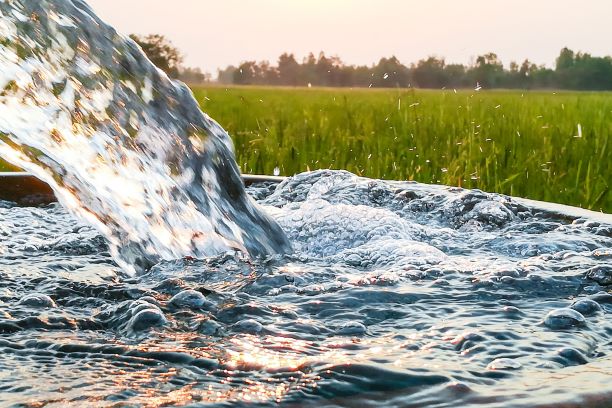

While the country is reeling under severe groundwater crisis and news from almost every state highlights the importance to save India’s precious water, the reality is far from different.
The government data reveals that a staggering 234 mineral and packaged drinking water and soft drink units issued state/central NOCs in the past three years have extracted a whopping 96,99,872.25 cubic meters (approx. 10 million liters) of groundwater in India.
With no clear guidelines on the extraction of the ground as well as surface water, the cultivation of water-intensive crops like rice and wheat is not the only culprit behind the diminishing water tables in many states.
[related_post]
For context, basmati accounts for almost 25 % of the total agricultural exports from India. As per reports, basmati exports, which grew by 9 % last year, stands around 3.36 million tonnes currently. While normal rice variety uses 1500-1800 liters of water for cultivation, 1 kg of Basmati uses 2500 liters of water.
If you do the math, nearly 8.5 trillion liters of water being consumed or in other words, India exports 8.5 trillion liters of water as rice. Of the 8.5 trillion liters mentioned above, one-fifth comes from surface or groundwater.
The data was made available by the minister of the newly constituted Jal Shakti ministry, Gajendra Singh Shekhawat, who recently told parliament that in the past three years, 234 units were issued NOCs by the Central Ground Water Authority (CGWA).
The Top Exploiters
With 46,86,324 cubic meters, Uttar Pradesh was the top extractor of the precious resource. Next was water-scarce Punjab with 8,44,660 Cubic meters, followed by Assam at 7,82,340 Cu. Mts, Rajasthan at 5,68,410 Cu.Mts. and Uttarakhand at fifth with 5,37,722 Cu Mts.
Among the top ten, the states of Haryana, Odisha, and Chattisgarh find a place. The data also reveals that 1,76,07 units have been issued state and 7,047 central NOCs so far – 926 of these are in Punjab and 840 in Haryana alone.
Tamil Nadu, Maharashtra, and Karnataka are the top three recipients of NOCs from state and central Licensing authorities.
According to groundwater regulation norms, industries are required to undertake groundwater recharge measures commensurate with the quantum of water taken out, as approved by the CGWA.
In December, the CGWA proposed the introduction of Water Conservation Fee (WCF), which was struck down by the National Green Tribunal (NGT) in January 2019, “The fee virtually gives license to harness groundwater to any extent” it said.
The NGT since has asked the government to come up with a better plan rather than allowing unabated groundwater extraction.
“It is clear that rather than laying down stricter norms for extraction of groundwater for commercial purposes and putting in place a robust institutional mechanism for surveillance and monitoring, extraction of groundwater has been liberalized adding to the crisis, unmindful of the ground situation and likely impact it will have on environment.”
To access the data click here
Sustainability-focused venture builder Sustain Labs Paris (SLP) has collaborated with Posterity Institute and launched ‘SLP…
Japan’s trading giant Sumitomo Corporation has signed an MoU with Malaysian renewable energy conglomerate reNIKOLA…
Renewable energy conglomerate TotalEnergies has signed a Sale and Purchase Agreement (SPA) with HitecVision, a…
Nordic energy company Gasum has inaugurated its newest and largest biogas plant in the Swedish…
The Central Government has approved an additional allocation of 2.8 million tonnes of Food Corporation…
1. The mandate for blending Compressed Biogas (CBG) with natural gas has come into effect…